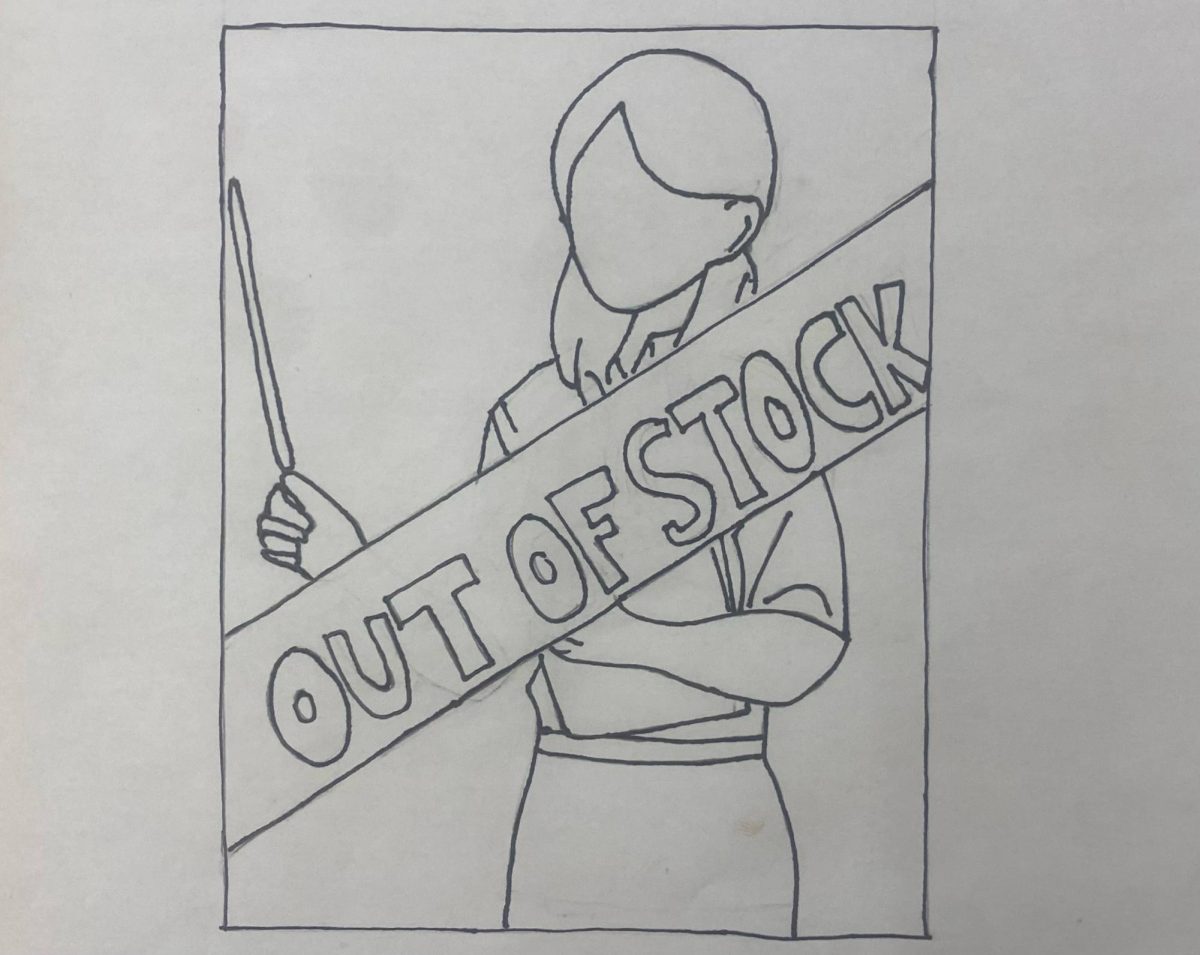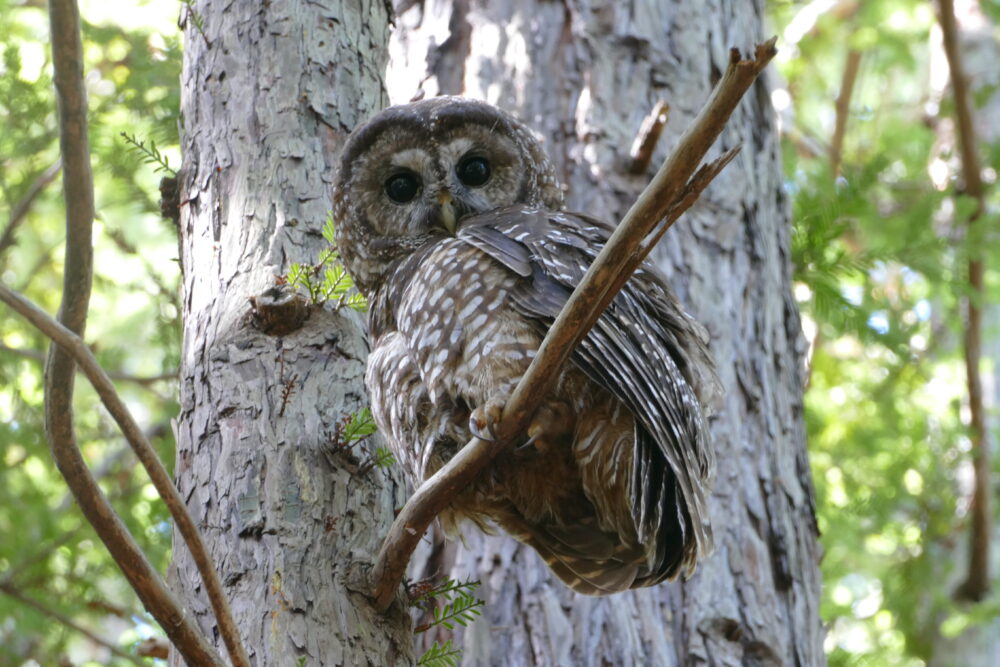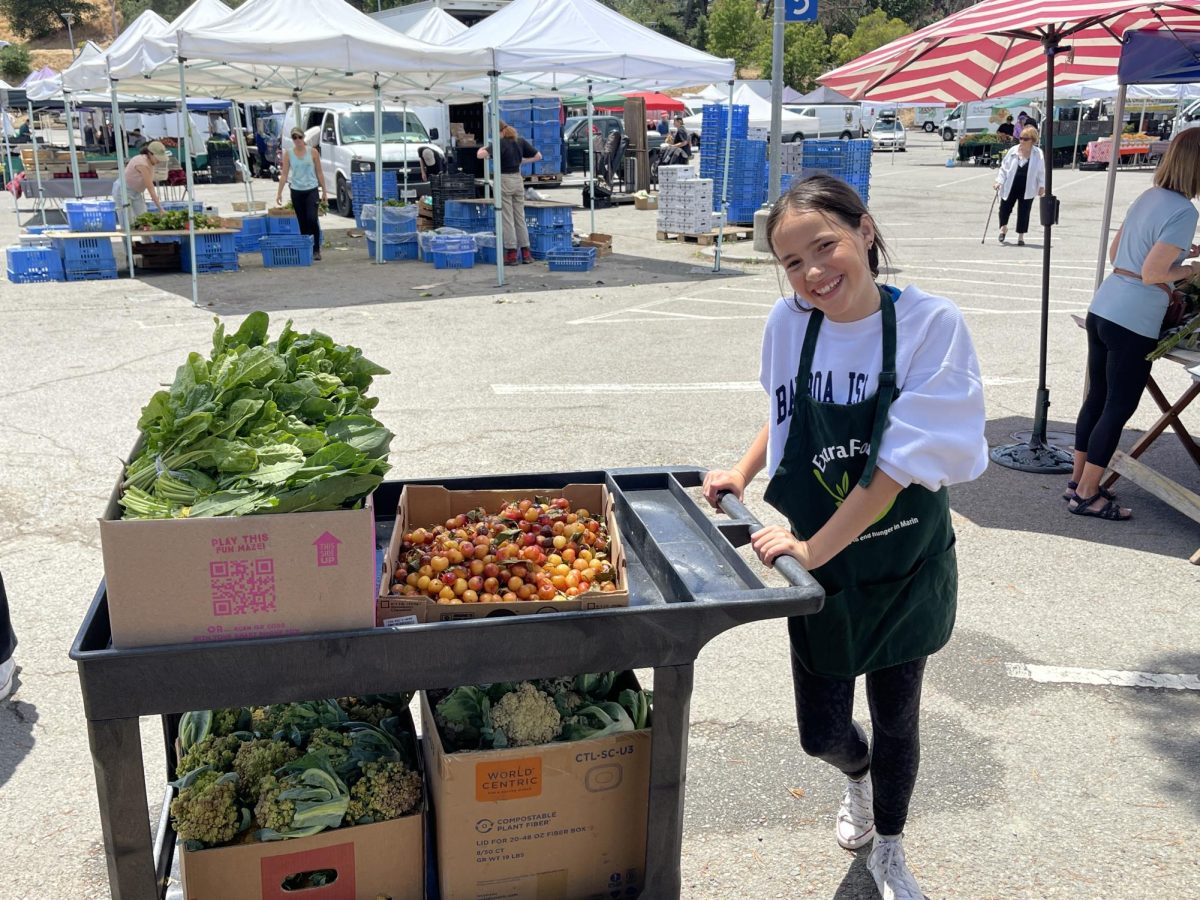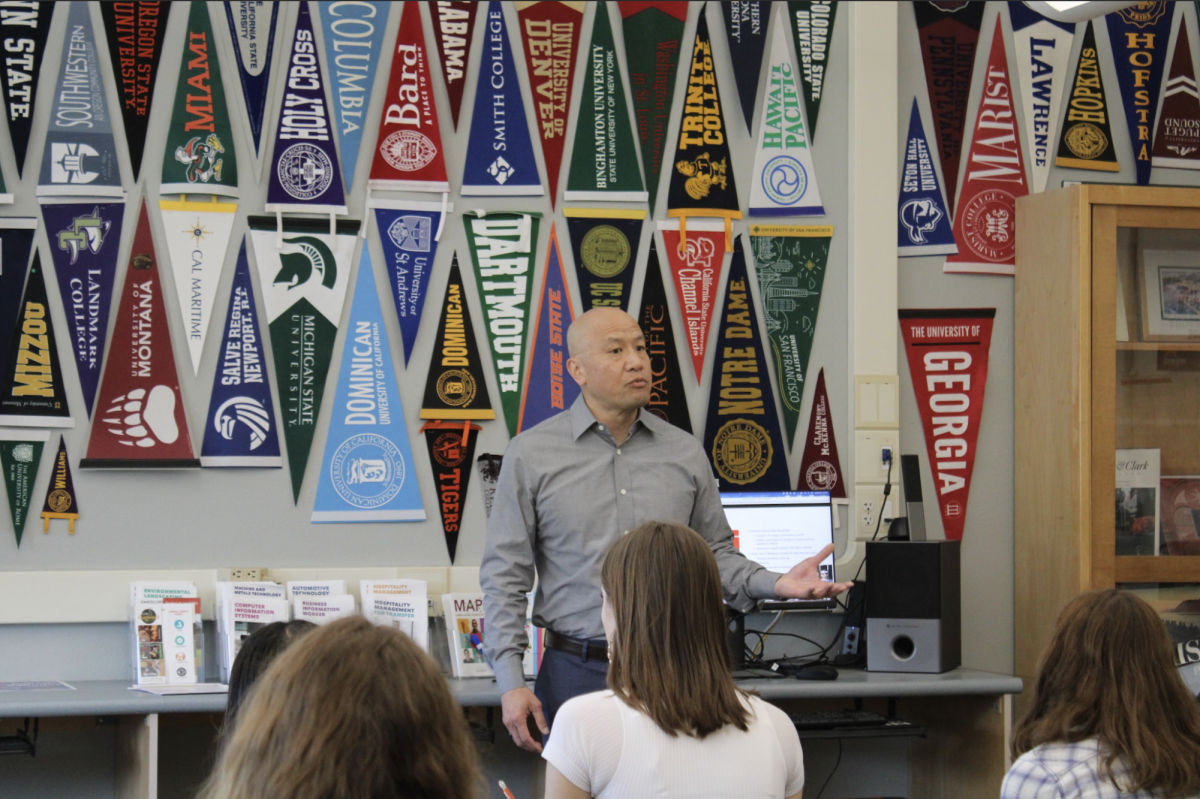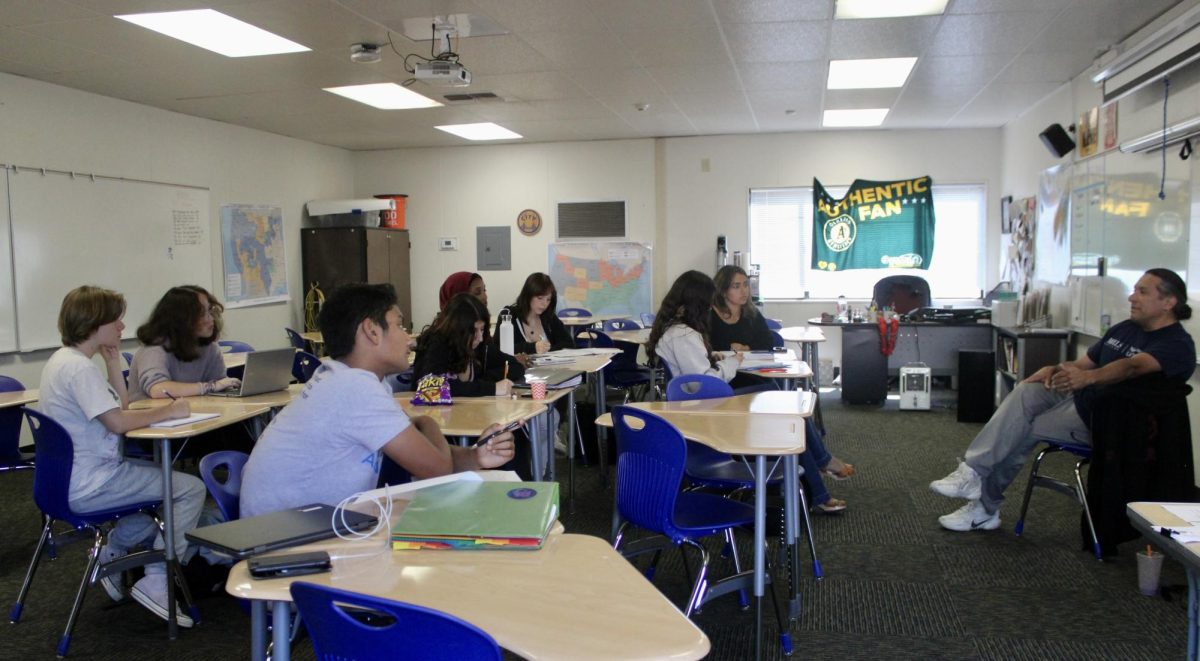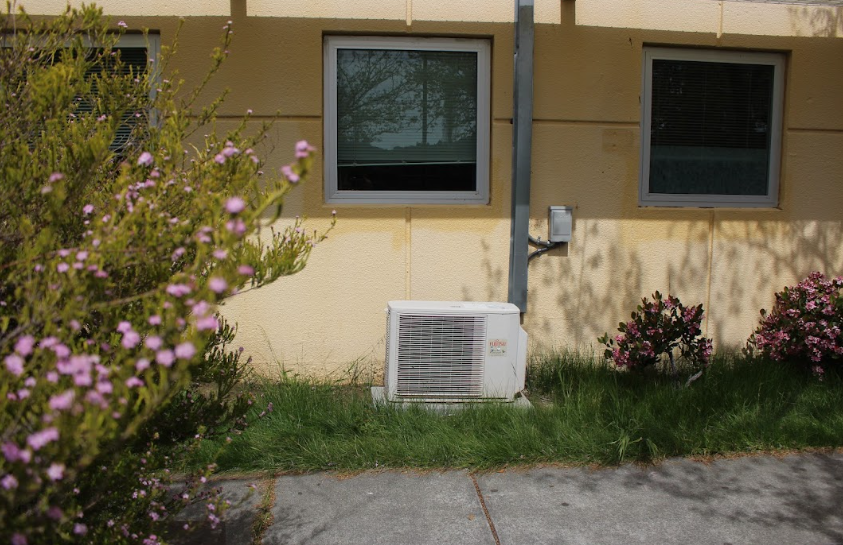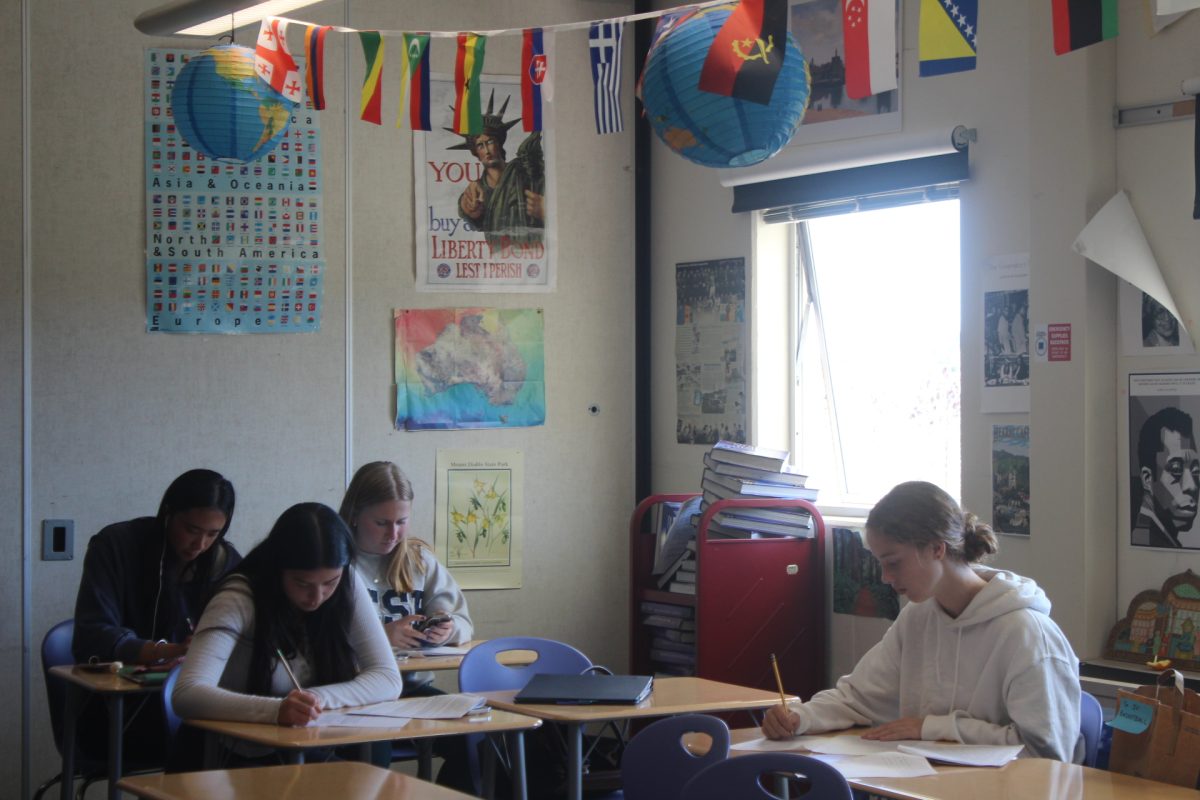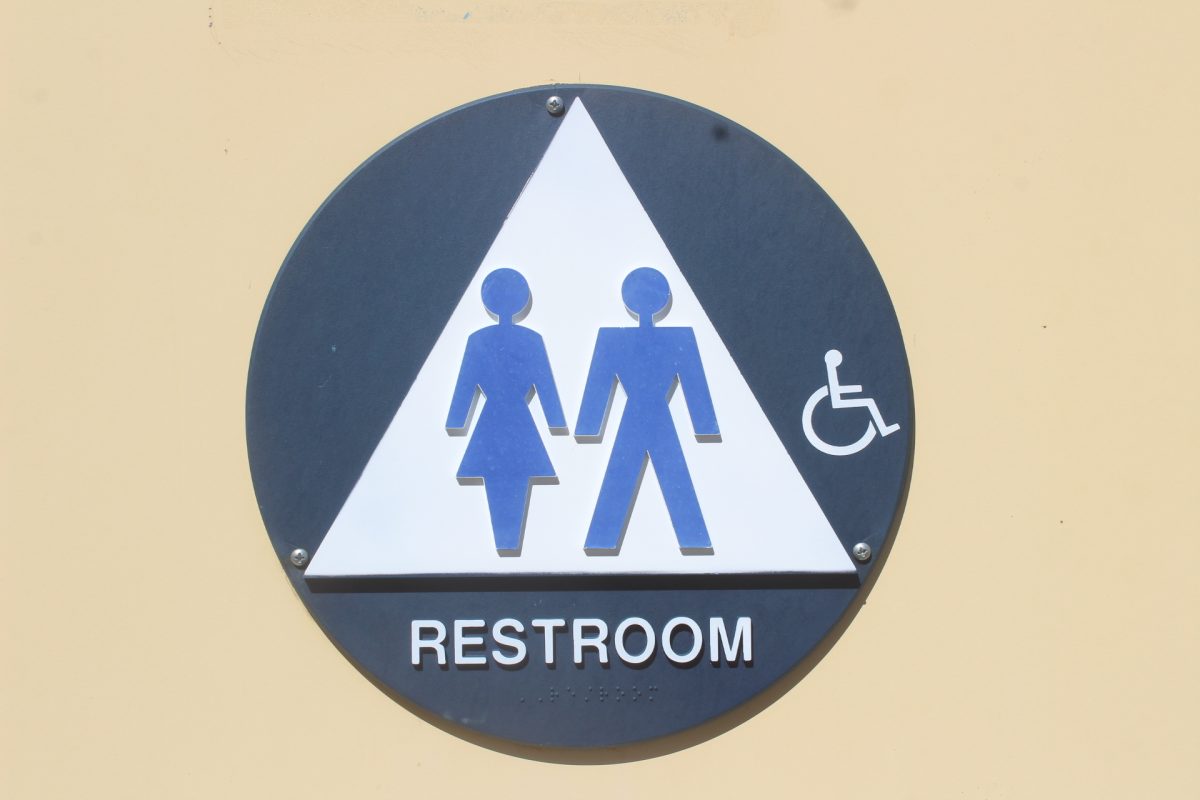On Thursday, Dec. 8, Redwood alumnus Douglas Woodring spoke to students at Del Mar Middle School about protecting Earth’s waters from pollutants, particularly plastics.
“We forgot about the ocean. We put pollution in. We let stuff go into it. We take all the fish out. We weren’t paying attention in the last forty years,” Woodring explained.
During his presentation, Woodring addressed complex concepts to reduce pollution such as economic incentivization for recycling.

“Trash has value,” he said. “It’s just that today, most of our systems are not making that trash valuable. But for all of you, by the time you get to working age, this trash is going to be valuable.”
To introduce this concept, Woodring displayed a picture of a small boy in a boat floating atop what appeared to be a sea of plastic, asking “What do you think he’s looking for?”
After hearing the correct answer—straws—shouted by one of the students in the audience, Woodring explained that yes, the boy was looking for straws because someone told him that they have value and that, if he collected them, he could make a profit.
Woodring speaks to people of all ages at schools, universities, companies and government organisations. However, he said that children are the most important audience of all.
“It is very important that some of these ideas [are introduced] early because this is the transformational age where you can really have them start thinking and remembering,” Woodring said.
Children, according to Woodring, are also an important audience because they are able to convince their parents and other adults in their communities to change their ways.

While growing up in Marin, Woodring spent much of his time hiking and biking on Mt. Tamalpais as well as wind surfing on the bay. He swam and played water polo at Redwood as well. However, according to Woodring, he took his life and the environment in Marin for granted.
After graduating from Redwood, Woodring attended the University of California, Berkeley where he studied economic and political science. Ironically, his first employer after graduating from Berkeley was a large Japanese fishing industry.
“I was the only foreigner in this Japanese fishing company. For two years I was trading seafood and now I’m trying to repair [the damage caused by industrial fishing],” Woodring explained.
Woodring co-founded an organization called Ocean Recovery Alliance which focuses on using technology and collaboration to improve ocean health. The group is based in Hong Kong and has launched two global projects, the Plastic Disclosure Project which helps universities and other establishments measure their waste and find ways to reduce, and the Global Alert platform.
The Ocean Recovery Alliance Global Alert app allows users to mark problematic trash hotspots in local bodies of water with GPS tags. These tags are visible to anyone using the app.

